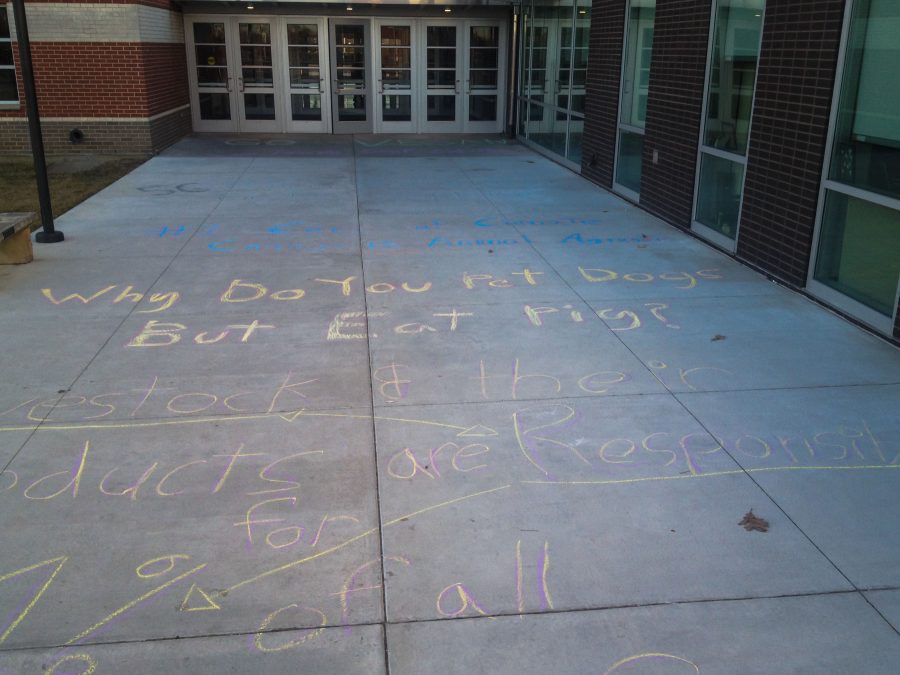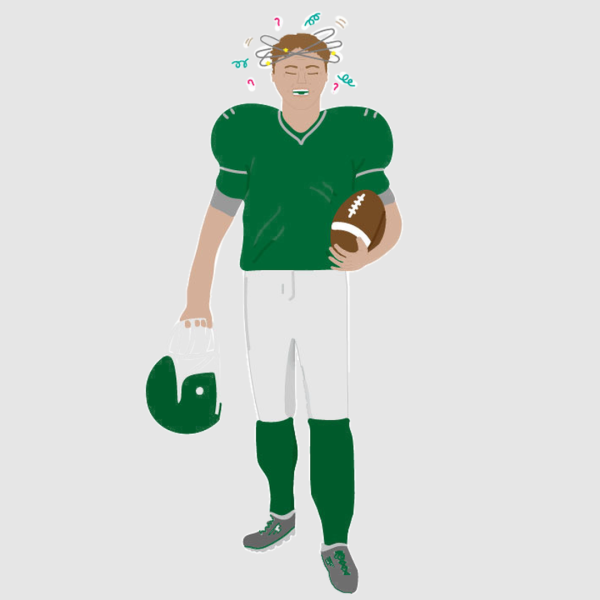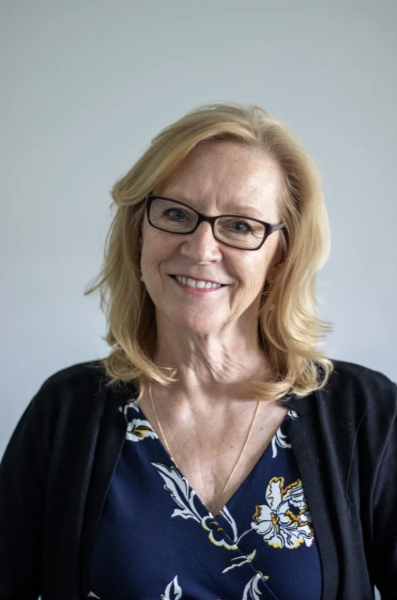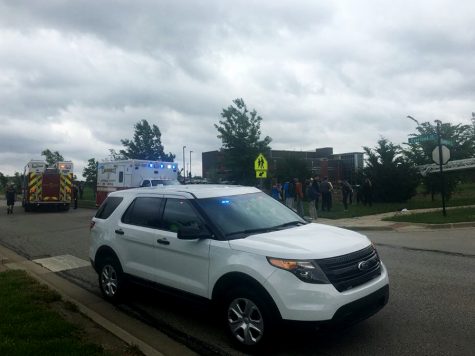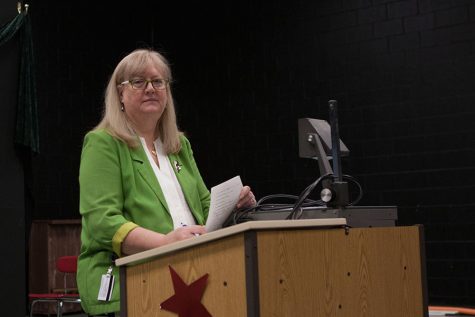Student raises awareness of the environmental effects of a meat-heavy diet
Walking into school, students and staff of FSHS observed the vegan propaganda written in sidewalk chalk. This was written by a group of vegan activists in the building. As well as the sidewalk chalk, they put up various flyers with facts about veganism and animal rights around the building.
Early one morning, senior Samantha Farb raced to school with a box of chalk and butterflies in her stomach, but she ignored her nerves and began working. Farb covered the pavement around the gym entrance with illustrations and facts. Her intention was to spread the word about the dangers of animal agriculture.
“My intent was to raise awareness about the environmental impacts of animal agriculture because in Lawrence there are tons of environmentalists who claim to really care about the environment,” Farb said. “But animal agriculture is the number one cause of global warming and climate change so it needs to be addressed.”
According to National Geographic, at our current rate of depletion, rainforests could completely vanish in the next hundred years. This would cause a loss in habitat for millions of species, as well as a negative impact in climate change. Much of this deforestation happens when farmers cut down trees to make room for crops and animal grazing.
Farb mainly wanted to call attention to the amount of water that is used for animals, cleaning farms and watering crops for animals to eat. If enough people stopped eating meat, it could greatly decrease the amount of water wasted on animal products.
“They’re saying we should change the shower heads or install a different toilet to save water,” Farb said. “Animal agriculture is something that everybody is looking over.”
According to the Huffington Post, it takes 1,847 gallons of water to produce one pound of beef and 518 gallons for one pound of chicken.
“A meat heavy diet is really problematic for the environment. We cannot keep sustaining this way of eating,” Farb said. “I thought that chalk is one way [to raise awareness] because it’s not like I’m forcing anyone it on somebody, it’s just information and facts on the sidewalk.”
Farb wanted to spread awareness in a way that would catch people’s attention and make them consider going vegan.
“You never know when information is going to click with somebody, because a lot of times, they see all sorts of posters and it just goes right over them,” Farb said. “So let’s say somebody has seen this information before, then they see it again and then they’re in the bathroom and they see it and they’re like, ‘Oh, this really makes sense! I think I might change my diet and go vegan.’”
In a diverse environment like Free State, strong statements can make a huge impact. Farb was not surprised that her cause did not sit well with everyone.
“I think there was definitely some negativity from [the school],” Farb said. “Especially from people whose families work in the animal agriculture industry and it’s part of who they are. I think some of them just laughed at it and tried to be like, ‘that’s stupid’, which is how high schoolers are.”
Overall, Farb received much positive feedback from this and she plans to continue spreading awareness on this topic.
“Even if there’s one person that thinks about [the facts] and might change what they eat, I think it’s definitely worth it,” Farb said.



